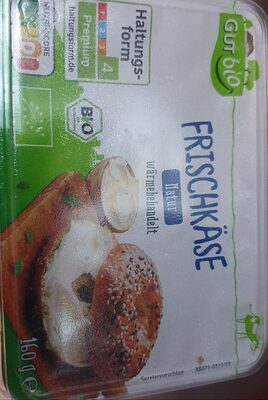
Barcode: 4061458297912
Frischkäse
HALAL
📝 Reason: All ingredients in ‘Frischkäse’ are derived from permissible sources and do not involve any Haram substances or processes. The product does not contain any meat or meat derivatives, and there are no Haram E-codes present. Therefore, the product is classified as Halal.
📄 Certificates: None
Ingredients:
Details
Is Frischkäse Halal? A Detailed Exploration
In today’s world, many consumers are seeking Halal-certified products, particularly those who adhere to Islamic dietary laws. One such product that often raises questions is “Frischkäse.” In this article, we will delve into the Halal status of Frischkäse, review its ingredients, and clarify any concerns regarding its compliance with Halal standards.
Understanding the Halal Status of Frischkäse
Frischkäse is a popular cheese made from pasteurized milk. According to our findings, Frischkäse is classified as HALAL. This classification is largely attributed to the nature of its ingredients, which do not include any Haram (forbidden) substances or processes.
Let’s break down the ingredients of Frischkäse:
- Pasteurisierte Bio HEUMILCH gt.S.: Pasteurized organic hay milk, which is derived from permissible sources and processed according to Halal guidelines.
- Meersalz: Sea salt, a natural mineral that is inherently Halal.
- Milchsäurebakterienkulturen: Lactic acid bacteria cultures, used in fermentation and permissible as they do not involve any Haram substances.
Breaking Down the Ingredients
Let’s take a closer look at the E-numbers and ingredients involved in Frischkäse:
1. Pasteurisierte Bio HEUMILCH gt.S.
This ingredient refers to pasteurized organic hay milk. It comes from cows that have been fed on organic hay, ensuring that it meets the standards of Halal dietary laws. Milk is recognized as Halal as long as it is sourced from permissible animals and processed correctly. The pasteurization process further solidifies its safety and adherence to Halal standards.
2. Meersalz
Sea salt is another core ingredient of Frischkäse. Naturally, salt is classified as Halal since it is a mineral and does not undergo any forbidden processes during production. Islamic dietary laws affirm that natural minerals are acceptable, making this component of Frischkäse compliant with Halal requirements.
3. Milchsäurebakterienkulturen
The lactic acid bacteria cultures used in Frischkäse are also deemed Halal. These microorganisms are essential for the fermentation process, contributing to the texture and flavor of the cheese. They are cultivated through processes that do not involve any Haram substances, ensuring their compliance with Halal dietary regulations.
Conclusion: Frischkäse’s Halal Assurance
All ingredients in Frischkäse are derived from permissible sources, and there are no meat or meat derivatives present. There are also no Haram E-codes or preservatives in the list of ingredients. Thus, individuals looking for a Halal dairy option can confidently include Frischkäse in their diets.
In summary, Frischkäse is a versatile and wholesome option for anyone seeking Halal-certified dairy products. With its simple ingredients, none of which compromise Halal guidelines, Frischkäse stands out as a safe choice for consumers. Understanding the Halal status of food is crucial for mindful eating, and knowing the safety of Frischkäse reinforces its place in a Halal lifestyle.
